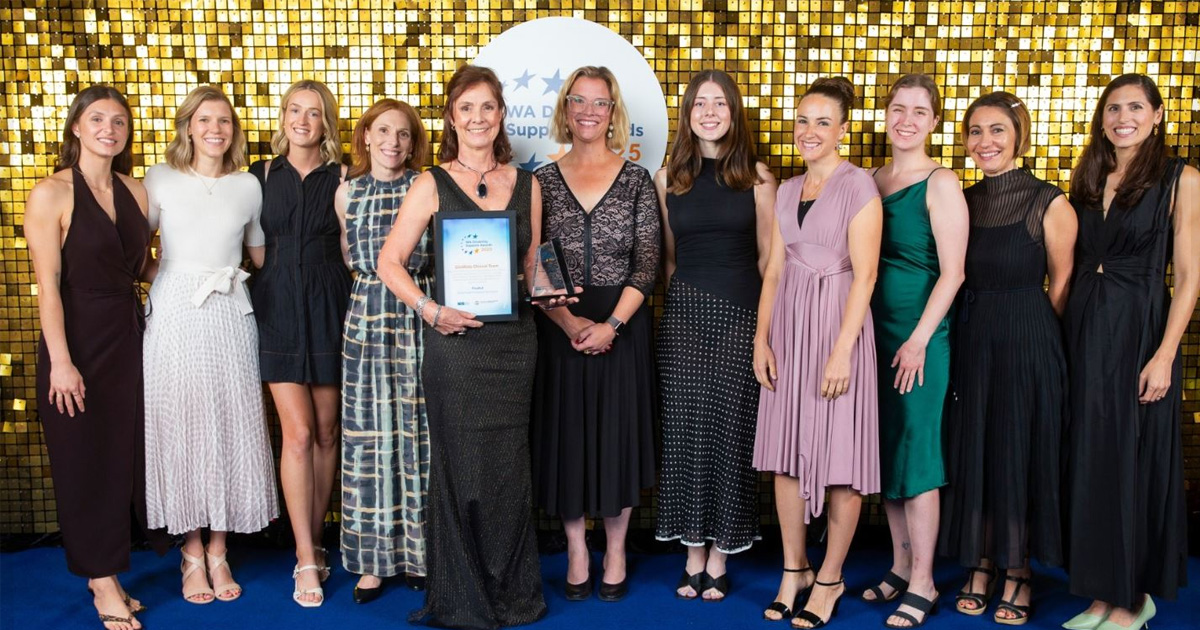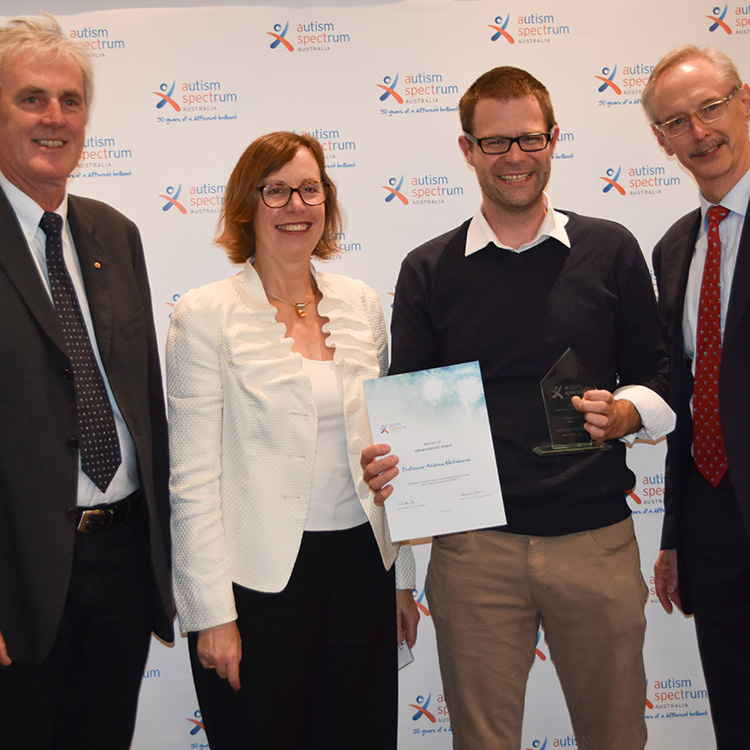Search
Showing results for "Au"

News & Events
The Kids’ clinical autism service wins WA disability awardCliniKids has won the Allied Health Professionals category at the Western Australian Disability Support Awards, announced at Crown Perth on the weekend.

News & Events
The Kids welcomes support for autistic studentsThe Kids Research Institute Australia has welcomed the recommendations to come out of the State Government’s inquiry into support for autistic children and young people in schools, released last week.

News & Events
Autism researcher wins accolade for science videosProfessor Andrew Whitehouse has been awarded an Autism Spectrum Australia Recognition Award for his work communicating scientific findings to families.

News & Events
Trans Pathways update to begin following Embrace Big Idea winTrans Pathways is set to receive an update in the lead-up to the ten-year anniversary of the release of this seminal study by The Kids Research Institute Australia.
Research
Complex Experiences of Gender AffirmationThis project explores the mental health and support needs of Australians with complex experiences of gender-affirmation.
Research
Mechanisms of Acute Viral Respiratory Illness in Children (MAVRIC)Large numbers of children need emergency medical treatment each year for respiratory illnesses, particularly for wheezing and asthma.
Research
Mind the distance: experiences of non-face-to-face child and youth mental health services during COVID-19 social distancing restrictions in Western AustraliaFollowing the outbreak of COVID-19, social distancing restrictions limited access to face-to-face mental health services in Western Australia (WA), necessitating a rapid transition to non-face-to-face alternatives, including telehealth. The current study investigated barriers and facilitators to telehealth access and engagement, and preferences for child and youth mental health service delivery during and beyond COVID-19.
Research
Disruption of ovarian function and induction of apoptosis in female mice by Brefeldin A: Mechanistic insights into reproductive toxicityThe investigation of ovarian development, dysfunction, and aging is essential for female reproductive health. Despite extensive research on the cellular functions of Brefeldin A (BFA) as an intracellular transport inhibitor, its specific effects and mechanisms on ovarian development/aging remain inadequately understood.
Research
Exercise Sensations During Moderate-Intensity Heart-Rate-Clamped Cycling in Graded Hypoxia: A Qualitative ApproachTo explore how graded hypoxia affects perceptual sensations during heart-rate-clamped cycling using qualitative methods.
Many of the Centre's researchers have been responsible for discovering and contributing to real game-changers, making a difference to children with diabetes.
